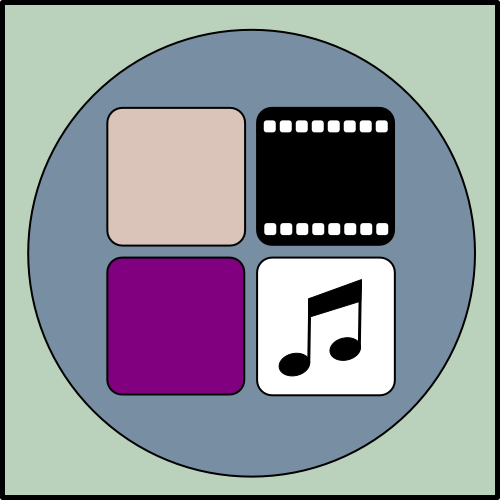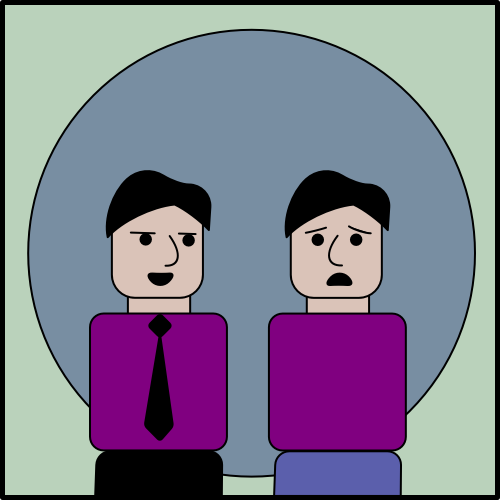Booooring... people falling asleep, not paying attention, playing with their phones... Fix it! Here's 4 tips.
A.E.Veltstra
November 18, 2014
1. Tell a Story

Do not just rattle off a list of facts. Are you an encyclopedia? Your presentation needs structure: if you do list facts, then show how they are related. A story of related bits, with an opening, middle, and conclusion, is much easier to remember.
Stop the Word Soup
People are looking at you to present an interesting topic. They gathered there for that topic, or for you. They did not gather to hear / see you read a book off a screen that's too far away.
No Text on Slides?

Not quite. Just don't put everything you discuss on the slides. Every decent presentation software has a "notes" option per slide. You can print those as a hand-out.
So what text do we show?
Just the keywords. Make them big: easy to see. And please, avoid reading a list off keywords from the screen. Show them, then say something interesting about them (like why you chose to show them at all).
What about Footers?
Ask yourself: does that footer have to be shown on screen? Or just on the hand-outs? Will your audience really forget who you are and who you work for during your presentation? Or what day it is today?
2. Stimulate with Moods

So instead of texts, present a mood, a feeling, an emotion. Find a colour, an image, and a sound, that you connect to each sub topic. If it inspires your passion, it will help you get your message across.
Tip: Look up the colour schemes used for the most successful TED presentations.
Details: Sensory Perception
People generally have 5 senses. We learn best when all of those are stimulated at the same time. Thus, seek to do just that: colour, images, a short movie, and text for vision; music or sound effects, and talking for hearing; physical product samples for touch; if the topic allows for it, foods and drinks to taste and smell.
Tip: If you can, make the room smell like coffee and vanilla. These smells are comforting to many in our cultures.
3. Challenge Intelligence

People learn well if allowed to play with the topic material: if we get to think about it, if we can tinker around with something physical, if we can share our opinions about it.
Ask people what they think
Literally. Present a keyword and ask your audience what springs to mind. After your presentation, they will have more to discuss.
Use a few puns
The more intelligent audience will appreciate them. Make sure to pause for a bit to let them process what you said and recognise it for a joke. This will get them to listen to you better.
Use a visual joke
The less intelligent audience will appreciate them. This will get them to pay more attention.
Tip: Don't kill them with jokes unless you are comedian.
Call to Action
At the end: ask your audience to help your cause. Ask them to ponder what you told them. Mention a web site to visit, or a local group to look up. Actively participating creates a stronger memory.
4. Appearance and Stance

This is important for physical presentations and group calls alike: dress the part and appear both passionate and knowledgeable. Do your homework to understand your audience, and other presenters and their presentations.
Speak Clearly
If you mumble, people will think you fail to grasp the subject matter. Also, they need to strain too much to understand you, which is tiring. A tiring presentation is no good in a row of presentations.
Tip: Adjust your speaking tempo to the location's reverberation. In churches and other high-echo places: speak slowly and allow many pauses. In low-echo places ("dry"): speak faster with less pauses.
Stand Up Straight
Learn about power poses. These will both make you look more confident and successful, and make you feel more confident and successful.
Tip: Look up the TED presentation about how power poses influence people's perception of us.
Time your Talk
You will want to know how much time your talk takes, both when speaking slowly and when speaking fast. At a lot of venues you will get a limited time to get your story across. Use it wisely.
Practice, practice, practice
Know your stuff. Know more than what you present, so you can add more detail after your presentation is over. Know your resources and references.
Allow for Failure
Allow yourself to improvise if technology fails, if you lose track, or if a heckler sabotages your presentation.
Your Turn
What tips do you have to make presentations more effective? Please share your experience in a comment below!
Need problem solving?
Talk to me. Let's meet for coffee or over lunch. Mail me at “omegajunior at protonmail dot com”.